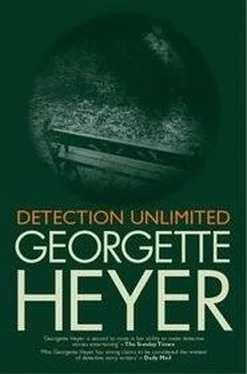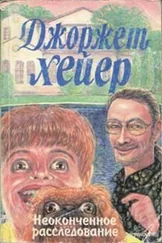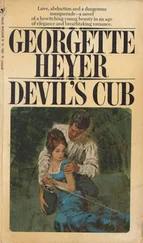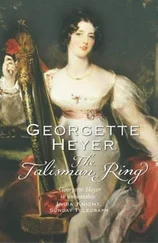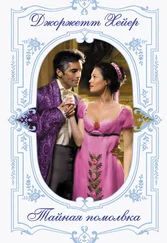Джорджетт Хейер - Detection Unlimited
Здесь есть возможность читать онлайн «Джорджетт Хейер - Detection Unlimited» весь текст электронной книги совершенно бесплатно (целиком полную версию без сокращений). В некоторых случаях можно слушать аудио, скачать через торрент в формате fb2 и присутствует краткое содержание. Год выпуска: 1953, Жанр: Детектив, на английском языке. Описание произведения, (предисловие) а так же отзывы посетителей доступны на портале библиотеки ЛибКат.
- Название:Detection Unlimited
- Автор:
- Жанр:
- Год:1953
- ISBN:нет данных
- Рейтинг книги:4 / 5. Голосов: 1
-
Избранное:Добавить в избранное
- Отзывы:
-
Ваша оценка:
- 80
- 1
- 2
- 3
- 4
- 5
Detection Unlimited: краткое содержание, описание и аннотация
Предлагаем к чтению аннотацию, описание, краткое содержание или предисловие (зависит от того, что написал сам автор книги «Detection Unlimited»). Если вы не нашли необходимую информацию о книге — напишите в комментариях, мы постараемся отыскать её.
Detection Unlimited — читать онлайн бесплатно полную книгу (весь текст) целиком
Ниже представлен текст книги, разбитый по страницам. Система сохранения места последней прочитанной страницы, позволяет с удобством читать онлайн бесплатно книгу «Detection Unlimited», без необходимости каждый раз заново искать на чём Вы остановились. Поставьте закладку, и сможете в любой момент перейти на страницу, на которой закончили чтение.
Интервал:
Закладка:
There was a short silence. The Colonel broke it. “This is a damned, nasty affair, Hemingway! Well—it's up to you, thank God! If you're right—if Warrenby was blackmailing the Squire, not for money, but merely to force him to sponsor him socially—does that, in your view, constitute a sufficient motive for murder?”
Hemingway rose to his feet. “I don't remember, offhand, how many cases I've had, sir,” he said dryly. “A good few. But I couldn't tell you what constitutes a motive for murder, not yet what doesn't. Some of the worst I've handled were committed for reasons you wouldn't even consider to be possible if homicide didn't happen to be your job. You don't need me to tell you that, sir.”
“No,” said the Colonel. “But it depends on the type of man involved.”
“That's right, sir: it does.”
The Colonel glanced up. “Blackmail,” he said heavily. “Yes, that's a motive, Chief Inspector—a strong motive.”
“Yes, and it gives us a nice wide field,” agreed Hemingway. “Because, unless I miss my bet, I don't think the Squire was the only person Warrenby was putting the black on.” He glanced at his watch. “If you'll excuse me, sir, I'll be leaving you. I told my chief I'd be giving him a ring about now.” He walked over to the door, and looked back, as he opened it, a twinkle in his eye. “I've got upwards of half a dozen people who could have committed this murder, as far as their alibis go, which is nowhere,” he remarked. “At least four of them have got what'll pass for motives, and the end of it will very likely be that it'll turn out to be someone I haven't begun to consider yet.”
“I hope to God you may be right!” said the Colonel.
Chapter Thirteen
There was no one in the small office temporarily allotted to the Chief Inspector, but he saw that Harbottle had been there before him, for a pile of papers had been laid on the desk. He sat down, pushed the papers to one side, and drew the telephone towards him.
He was speedily connected with his immediate superior, Superintendent Hinckley, and was greeted by him with asperity, and a total lack of formality, the Superintendent saying, with awful sarcasm, that it was nice to hear his voice, and adding that there was nothing he liked better than to be kept hanging about at Headquarters, particularly when he happened to have a date. To which the Chief Inspector replied suitably, not omitting to animadvert upon persons who sat all day with their feet on their desks. After which interchange of civilities, the Superintendent laughed, and said: “Well, how's it going, Stanley?”
“I've seen worse. What have you got for me?”
“Nothing that's likely to interest you, I'm afraid. Seems quite straightforward. Born in 1914, in Nottinghamshire. Only son of the Reverend James Arthur Lindale. Father still living, mother died in 1933; two sisters, one married, the other single. Educated at Stillingborough College. Joined his uncle's firm of Lindale & Crewe, stockbrokers, in 1933. Became a member of the Stock Exchange, 1935. Called up in 1939, and served with the R.A. until 1946, when he was demobilised—do you want his military record? He served all over the place, and picked up a D.S.O. Ended up as a Major, with the Army of Occupation, in Germany.”
“No, I don't think that's likely to be of much use. What's he been doing since he was demobilised?”
“He went back to the Stock Exchange for nearly five years. Lived in bachelor chambers, in Jermyn Street. There's nothing known about him, barring the bare facts I've given you. Hasn't even had his driving licence endorsed. He left the Stock Exchange at the end of 1950. That's all I've got for you.”
“I'm bound to say it isn't promising,” said Hemingway. “What about his wife?”
“He hasn't got one.”
“Yes, he has!” Hemingway said impatiently. “And a baby! I told you so, and what's more I asked you to look into her record too!”
“I know you did, but I haven't got anything here about her.”
“Who handled this?” demanded Hemingway suspiciously.
“Jimmy Wroxham.”
“Oh,” said Hemingway. “Well, it's not like him to miss anything that's wanted. You did tell him to look into the wife, Bob?”
“Yes, I did, and if I ever see half a chance of getting you dismissed from the service with ignominy—”
“You won't,” interrupted Hemingway. “No, look here, Bob, Jimmy must have slipped up! I've seen the set-up: husband and wife, and one baby, a year old. By what Lindale told me, I should say he was married about two years ago.”
“No record,” replied the Superintendent. “Jimmy had a talk with one of the partners of the firm he used to be with, and he didn't seem to know where he was now, or what he was doing. Said he left the Stock Exchange because he was unsettled by the War.”
“That's pretty much what Lindale told me. But, by what you've just read out to me, it looks as though it took him five years to decide he couldn't stick city life any longer. Did you say he had a couple of sisters living?”
“Yes. The elder one lives with the father—he's got a parish somewhere in the Midlands—and the younger one's married to a shipowner. Lives up near Birkenhead.”
“Birkenhead . . . Well, that's some way off. Might account for her never having been seen in these parts. I should have thought the other one would have visited him, though. Oh, well! Perhaps she can't leave the old man. Did Jimmy see the uncle?”
“No, he died in the last year of the War. No Lindales at all in the firm since your man pulled out.”
“Pity. He might have been able to wise us up. Something odd about this.”
“I don't see anything odd about it. The woman you've seen must be his mistress. It does happen, you know!”
Hemingway was frowning, and ignored this frivolity. “It hasn't got that appearance,” he said. “She isn't that type at all. It isn't that kind of household, either. Well, never mind! I've got another job I want done. Now, listen, Bob!”
He was still talking to Hinckley when Inspector Harbottle came into the office. The Inspector wore his usual air of impenetrable gloom, a circumstance which prompted his superior to tell the Superintendent that he must now ring off. “Because Dismal Desmond's just come in, and I can see he's suffered a bereavement. So-long, Bob!”
“If that was the Superintendent,” said Harbottle, eyeing him severely, “has he had the report on any of the bullets yet, sir?”
“Only the first. Nothing like the one we're after. We shall be getting the rest tomorrow.”
“It was not fired from Plenmeller's rifle?” said Harbottle, a strong inflexion of disappointment in his voice. “Well, I'm surprised!”
“I'm not,” replied Hemingway. “I fancy I see that bird leaving the rifle in the case for me to pick up, if he'd shot Warrenby with it!”
“Well,” said Harbottle, dissatisfied, “of all the people I've seen down here, I'd say he was the likeliest. I don't mind telling you, Chief, I took a dislike to him the instant I laid eyes on him.”
“I know you did, and I'll do my best to bring it home to him,” said Hemingway, who was jotting down various items in his notebook.
“It's no laughing matter,” said the Inspector austerely. “A wicked tongue shows a wicked nature! When he told you he had murdered his brother, I was never more shocked in my life. Even you, sir, would not talk about a thing like that as if it was a good joke!”
“Now, look here!” exclaimed Hemingway wrathfully.
“And, what is more,” continued the Inspector, paying no heed to him, “whatever I may have believed at the time, I believe him now!”
“You can believe what you like, but I'm not here to investigate the other Plenmeller's death. Carsethorn tells me there was no doubt he committed suicide, anyway.”
Читать дальшеИнтервал:
Закладка:
Похожие книги на «Detection Unlimited»
Представляем Вашему вниманию похожие книги на «Detection Unlimited» списком для выбора. Мы отобрали схожую по названию и смыслу литературу в надежде предоставить читателям больше вариантов отыскать новые, интересные, ещё непрочитанные произведения.
Обсуждение, отзывы о книге «Detection Unlimited» и просто собственные мнения читателей. Оставьте ваши комментарии, напишите, что Вы думаете о произведении, его смысле или главных героях. Укажите что конкретно понравилось, а что нет, и почему Вы так считаете.
